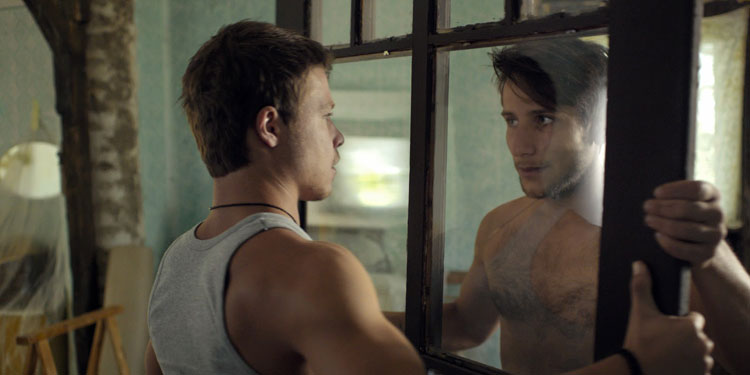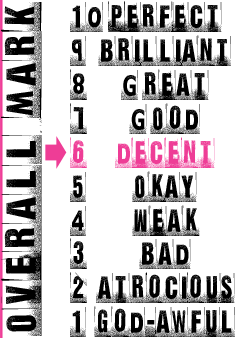
Director: Ádám Császi
Running Time: 105 mins
Release Date: October 9th 2014

Land Of Storms centres around a promising yet troubled and angry football player, Szabi, played with high-quality brooding by Andras Suto. No longer enjoying the beautiful game, Szabi moves back to Hungary to the house he inherited from his grandfather. When he starts to renovate the house, which has become very tumbledown and rotten due to vandalism and lack of care, he meets a young man called Arun (Adam Varga) who lives nearby. Szabi and Arun begin to work on the house together and as they get to know each other, a deeper relationship starts to blossom.
Eventually the extremely religious and intolerant locals, never keen on Arun’s relationship with this newcomer, start to understand that there’s something more than friendship between the two. Add to that the appearance of Szabi’s German friend and possible lover Bernard (Sebastian Urzendowsky), and a three-way dynamic begins to unfold, which the locals don’t like at all.
Land Of Storms is a very brutal movie, both compelling and at times hard to watch. It’s something of a tragic story, as two young men with no positive emotional influences in their lives are battling their own feelings towards each other and the homphobia in themselves as well as all around them.
Beatings, torture and sexual assault are constant themes throughout this hyper-masculine, uncompromising tale; there are some painful scenes that might be a little much for some viewer. As a whole, this film lacks tenderness.
Nothing in this film escapes the sexual violence that is the motif running throughout. The lines between sport, conflict, love and sex are very blurred., and mixed into this bleak portrayal of running with the pack or risking beatings and having cigarettes put out on your face and sexually assaulted because of your sexual orientation.
It seems as though every character’s emotional motivation is “I love you so I must hurt you”, whether that’s physically in the way Szabi’s father greets him when he returns from football camp; or the emotional betrayal felt on both sides between Arun and Arun’s bedridden and heavily dependent mother who, despite needing her son’s assistance in her daily life, can’t stand the thought of her son being with another man.
Csazi’s vision doesn’t utilise a lot of dialogue and while that’s evocative of the very frustrated and pent up feelings conveyed by the main cast, there are moments when it’s a little much and the viewer might find himself wanting for them to have a hug, or for someone to show a more positive emotional interaction.
The performances of the main actors are extremely good – everyone is tightly-wound and shut into their tiny world, unable to express the things that would help them move beyond it.
Overall Verdict: As a portrayal of homophobia in the rural, extremely religious area of another country, it seems rather extreme to a British audience but one can have no doubt that there are areas in the world where this could conceivably happen. Not an easy movie to watch, it certainly shines a light on less forward-thinking countries’ attitudes towards homosexuality, and the struggle to express feelings of love and tenderness in unforgiving surroundings. Perhaps the most striking film of Iris 2014.
Reviewer: Scott Elliott





After this bittersweet film, I am completely in love with Andras Suto. I hope he has a long, brilliant career.